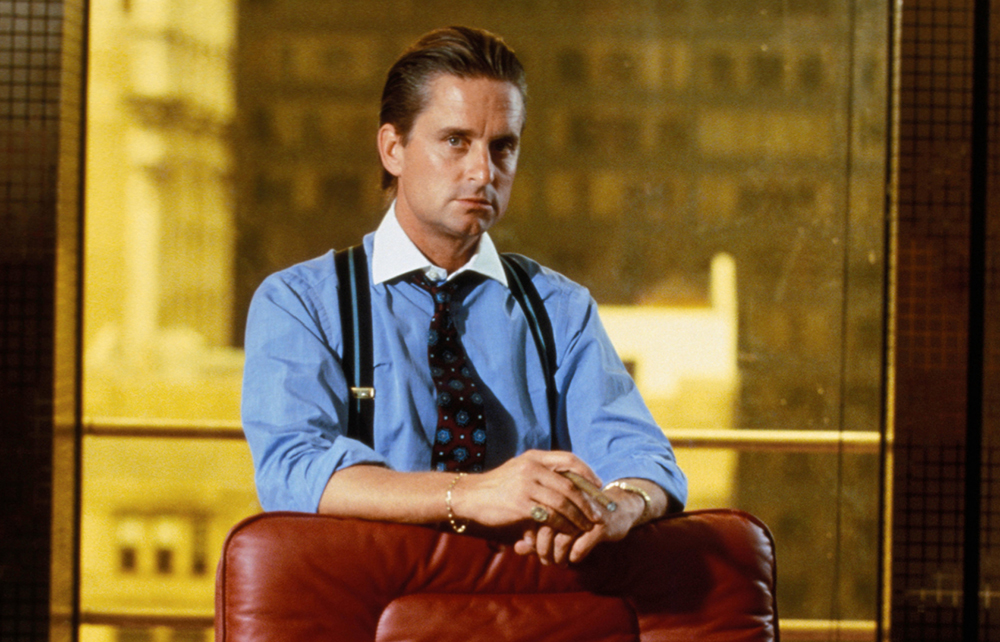I suspect I’ve had a lot more fun writing about the annual Sunday Times Rich List over the years than many of its denizens have had clambering into it and staying there behind their high-tech security gates and their phalanx of tax advisers. The 2024 roll call includes some great British wealth-creation stories – led by the industrialist Sir Jim Ratcliffe, the inventor Sir James Dyson and the Far Eastern trading Swire dynasty. But if the completed jigsaw of 300 names makes any sort of picture, it is of a vast treasure hoard from elsewhere, and in some cases from nowhere, that has found a relatively safe vault in the UK.
That’s not a bad thing in itself as an advert for our quality of life and rule of law. But it hardly speaks of entrepreneurial joie de vivre – while a real advert, poignantly placed in the middle of the list, highlights the burdens of boundless wealth: it’s a double-page spread for Clinic des Alpes at Montreux in Switzerland, offering ‘exceptionally private’ treatment for substance dependency, anxiety, depression and burnout.
Irish heroes
All the more reason to salute a self-made billionaire who in his heyday exuded joie de vivre in spades: Sir Tony O’Reilly, the Irish rugby international, inventor of Kerrygold butter, newspaper proprietor, transatlantic tycoon and all-Ireland philanthropist who has died aged 88. Stamina, style and ego combined to bring O’Reilly to prominence in the days when Ireland was still a grey economic backwater. He invested his own money in his home country while simultaneously running HJ Heinz in the US – his achievements far outshining the next generation of Irish high-rollers who made easy money in the ‘Celtic Tiger’ years before the 2008 crash.
It was the cruellest of ironies that O’Reilly was hounded into bankruptcy in 2015 as a token scalp for Allied Irish Bank – which had ruined itself by bad lending in the boom era and survived only through nationalisation. Too gilded to be universally admired in his pomp, he won much wider sympathy for his dignity in financial defeat.
Those who knew O’Reilly speak of his radiant energy and bonhomie. He joins my small pantheon of Irish heroes alongside the world trade negotiator and BP chairman Peter Sutherland, who died in 2018. There’ll be another niche – many years hence, I hope – for Europe’s most indefatigable business disruptor, Ryanair chief Michael O’Leary.
Echoes of Gekko
Another one gone, this time an anti-hero: Ivan Boesky died this week, aged 87. A notorious Wall Street arbitrageur who made fortunes on share bets in the 1980s boom until he was jailed for insider trading, Boesky secured a place in history with his speech to the graduation ceremony of the Haas School of Business at Berkeley in California in May 1986, the students having voted to invite him: ‘Greed is all right, by the way,’ he told them. ‘I think greed is healthy. You can be greedy and still feel good about yourself.’
His lines were parroted the following year in the film Wall Street by the corporate raider Gordon Gekko played by Michael Douglas, addressing a shareholder meeting of a threatened industrial company called Teldar Paper: ‘Greed, for lack of a better word, is good… Greed clarifies, cuts through and captures the essence of the evolutionary spirit. Greed, in all of its forms; greed for life, for money, for love, for knowledge, has marked the upward surge of mankind.’
In both cases, arguably what was meant by the speaker was that innovation, efficient use of capital and wider prosperity are all driven by a healthy urge for material rewards on the part of entrepreneurs and business leaders – a more or less respectable strand of American thought that can be traced back to the post-war novelist-philosopher Ayn Rand’s work on ‘the virtue of selfishness’. But what was understood by cinema audiences (and, of course, intended by Oliver Stone, Wall Street’s left-leaning director and co-writer) was that free financial markets are the domain of greedy monsters like Boesky and Gekko. The words of both of them have done untold damage to the cause of responsible capitalism ever since.
Czech mate
Is Daniel Kretinsky, the media-shy Czech billionaire who looks set to take over Royal Mail, an O’Reilly or a Gekko? The jury’s out on that question. But the so-called ‘Czech sphinx’ – who already owns 27.5 per cent of Royal Mail’s parent International Distributions Services (IDS) – has raised his cash offer for the whole of IDS from £3.1 billion to £3.5 billion, which the board of IDS is ‘minded’ to recommend to shareholders – while Business Secretary Kemi Badenoch has indicated she won’t raise national security objections so long as Royal Mail’s universal service obligation (for six-days-a-week delivery to every household) is protected by ‘cast-iron’ guarantees.
So the deal seems likely to go ahead. Bizarrely, the Communication Workers Union, which might have been expected vehemently to oppose it, has been taking stick from the harder left (I refer you to the World Socialist website) for ‘collusion’ with Kretinsky’s EP Group, while the presence as an adviser to EP of former Labour MP Chuka Umunna, now a banker with JP Morgan, has been taken as further evidence of a stitch-up.
Some observers think Kretinsky will have bagged himself a bargain if a current regulatory review permits a reduced second–class letter service that could transform Royal Mail’s finances for the better. Others, including me, still think he’s only interested in acquiring GLS, the profitable Netherlands–based international parcels arm of IDS, and will end up trying to pass the Royal Mail package to yet another buyer, or back to a Labour government. Either way, how odd is it – after all the fuss over energy and water – that another piece of vital national infrastructure should be passing into foreign private-equity ownership with so little public or political outcry?








Comments